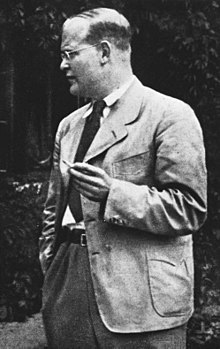Portal:Religion
The Religion Portal
Religion is a range of social-cultural systems, including designated behaviors and practices, morals, beliefs, worldviews, texts, sanctified places, prophecies, ethics, or organizations, that generally relate humanity to supernatural, transcendental, and spiritual elements—although there is no scholarly consensus over what precisely constitutes a religion. Different religions may or may not contain various elements ranging from the divine, sacredness, faith, and a supernatural being or beings. (Full article...)
 Vital article
Vital article
Sikhism (/ˈsiːkɪzəm/ SEEK-iz-əm), also known as Sikhi (Punjabi: ਸਿੱਖੀ Sikkhī, [ˈsɪk.kʰiː] ⓘ, from Punjabi: ਸਿੱਖ, romanized: Sikh, lit. 'disciple'), is an Indian religion and philosophy that originated in the Punjab region of the Indian subcontinent around the end of the 15th century CE. It is one of the most recently founded major religions and among the largest in the world with about 25–30 million adherents (known as Sikhs). (Full article...)
 Did you know (auto-generated)
Did you know (auto-generated)
- ... that the nonconformist minister Ichabod Chauncey was banished from England under the Religion Act 1592 and spent two years in exile in Holland where he published a defence of his actions?
- ... that in her 2021 book White Evangelical Racism, professor of religion Anthea Butler called American evangelicalism a pro-Trump, "nationalistic political movement"?
- ... that Freedom of Religion South Africa filed an unsuccessful lawsuit to keep child spanking legal?
- ... that Gamaliel's principle has been used to support religious pluralism and reforms within religious groups?
- ... that Catherine de Parthenay, a 16th-century Huguenot leader, was a member of "a highly successful network of information" during the French Wars of Religion?
- ... that religious studies scholar C. Jouco Bleeker believed that religions are like acorns?

The Diocletianic or Great Persecution was the last and most severe persecution of Christians in the Roman Empire. In 303, the emperors Diocletian, Maximian, Galerius, and Constantius issued a series of edicts rescinding Christians' legal rights and demanding that they comply with traditional religious practices. Later edicts targeted the clergy and demanded universal sacrifice, ordering all inhabitants to sacrifice to the Roman gods. The persecution varied in intensity across the empire—weakest in Gaul and Britain, where only the first edict was applied, and strongest in the Eastern provinces. Persecutory laws were nullified by different emperors (Galerius with the Edict of Serdica in 311) at different times, but Constantine and Licinius' Edict of Milan in 313 has traditionally marked the end of the persecution. (Full article...)



































































